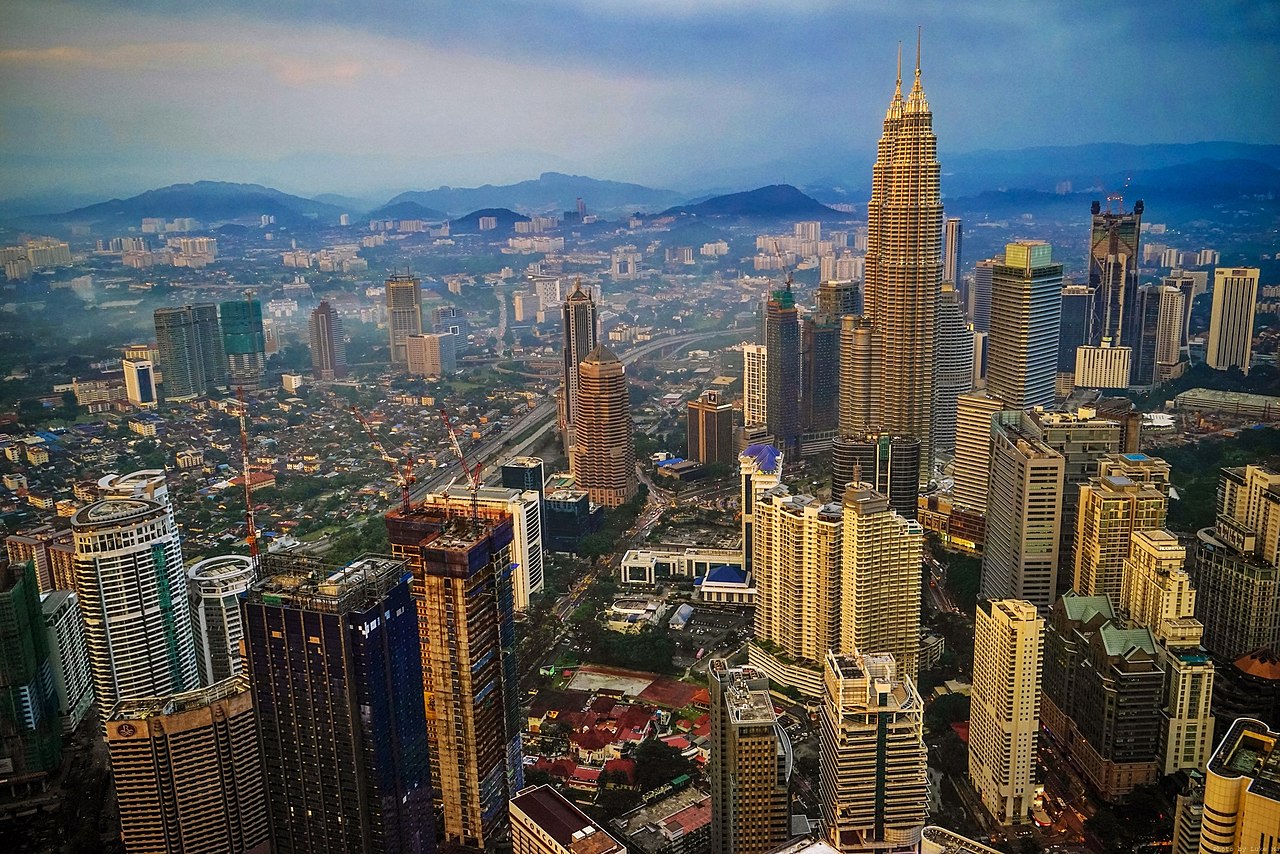As global demand for data storage, AI workloads, and cloud services continues to rise, Malaysia has emerged as a key player in Southeast Asia’s data centre market. The increasing need for high-performance computing infrastructure to support AI-driven innovation is accelerating investments in digital infrastructure. Guided by the National Investment Aspirations (NIA), the country prioritizes high-value sectors such as Electrical & Electronics, the Digital Economy, and Pharmaceuticals, positioning itself as a regional hub for future-ready technologies and investments.
In Malaysia, the Malaysian Investment Development Authority (MIDA) and the Malaysia Digital Economy Corporation (MDEC) play a crucial role in facilitating both foreign and local digital investments. As part of this initiative, the Data Centre Task Force (DCTF), co-chaired by International Trade and Industry (MITI) Minister Tengku Datuk Seri Zafrul Tengku Abdul Aziz and Digital Minister Gobind Singh Deo, addresses industry concerns, plans investment strategies, and ensures sustainable growth in the data centre sector. The DCTF will introduce policies to streamline data centre development and improve coordination within the ecosystem. The government also provides incentives, regulatory facilitation, and a supportive environment to boost digital investments and growth.
Digital infrastructure investments and milestones
Since 2021, the government has approved 21 data centre projects under the Digital Ecosystem Acceleration Scheme, totaling USD23.9 billion in investment. Foreign investment remains the primary driver, contributing 90% (USD21.5 billion) of the total, with the remaining 10% (USD2.4 billion) coming from domestic sources.
Several high-profile projects have propelled Malaysia’s data centre industry forward. The rise of hyperscalers began in 2022, marked by Bridge Data Centres launching its first phase in Johor, with ByteDance as the anchor tenant, solidifying the region’s status as a hub for multinational corporations. Johor, catering primarily to regional markets, complements Greater Kuala Lumpur, which serves the growing domestic demand for digital infrastructure. Since then, Malaysia has attracted data centre investors from both the East and West, including major players such as DayOne (previously known as ‘GDS’), Princeton Digital Group, Yondr, and others—reinforcing the country’s position as a digital infrastructure hotspot in Southeast Asia.
In 2024, technology giants like Oracle, Amazon, Google, and Microsoft are setting up cloud regions in Malaysia, reflecting the country’s growing significance in the digital economy. This influx of major players is driven by the increasing demand for AI Infrastructure as a Service, spurred by the rapid advancements in Generative AI (GenAI) technologies. Johor, in particular, is experiencing a data centre boom, largely fueled by multinational corporations with regional operations, while other parts of Malaysia focus on meeting domestic demand.
Government policies and incentives
Malaysia combines fiscal and non-fiscal incentives to support digital infrastructure investments. The Digital Ecosystem Acceleration (DESAC) Schemes provides significant tax relief for promoted digital activities, offering up to 10 years tax incentive based on value of investments or lower corporate tax rate. Notably, DESAC takes a holistic approach to digital infrastructure development—beyond data centres and cloud infrastructure, submarine cable landing stations are also recognized as activities qualify for tax incentive. This inclusion reflects the government’s recognition that robust and secure global connectivity is essential to supporting Malaysia’s digital ecosystem.
Furthermore, the Malaysia Digital Status provides a range of tax and non-tax incentives, such as duty-free importation and sales tax exemptions for multimedia equipment, unrestricted employment of foreign knowledge workers, 100% foreign ownership of local entities, and the ability to source funding and raise capital internationally, enhancing the country’s appeal to investors.
Balancing FDI and sustainability
Sustainability is increasingly central to Malaysia’s approach to attracting foreign direct investment (FDI), particularly in the digital infrastructure sector. The government encourages alignment with ESG principles, integrating economic, social, and environmental factors into investment planning. While Malaysia provides a strong framework for digital infrastructure investments, ensuring long-term sustainability requires navigating challenges such as regulatory complexities, cost thresholds, and evolving guidelines—especially in Johor, which has become a key destination for data centre investments. To facilitate coordinated and sustainable growth, the Johor state government, in partnership with PLANMalaysia Johor, introduced the Johor State Data Centre Development Planning Guideline in June 2024 to better manage and facilitate data centre activities in the region.
In addition to incentives, the Malaysian government ensures that growth aligns with sustainability by addressing the resource-intensive nature of data centre investments. The launch of the Guideline for Sustainable Development of Data Centres in December 2024, alongside the Digital Ecosystem Acceleration (DESAC) scheme, aims to attract high-quality digital infrastructure projects while promoting responsible development. The guidelines focus on minimizing energy, water, and carbon footprints of data centres, particularly given the sector’s high resource demands with key sustainability metrics, such as Power Usage Effectiveness (PUE), Water Usage Effectiveness (WUE), and Carbon Usage Effectiveness (CUE), benchmarked across data centre categories like colocation and hyperscalers, reinforcing Malaysia’s leadership in sustainable digital infrastructure.
The Johor-Singapore SEZ
The Johor-Singapore Special Economic Zone (JS-SEZ) represents a strategic convergence of infrastructure, policy, and cross-border cooperation—poised to become a leading node in Southeast Asia’s digital infrastructure landscape. Adjacent to Singapore, one of the world’s most mature data centre markets, JS-SEZ offers a natural extension of regional capacity by blending Singapore’s global connectivity and operational excellence with Malaysia’s land availability, skilled talent pool, and cost competitiveness.
This synergy positions JS-SEZ as a regional data centre powerhouse—not just in terms of hosting capacity, but also through the development of end-to-end digital infrastructure components. Johor is seeing increased localization of the value chain, with the establishment of server rack manufacturing (e.g., Wiwynn Corporation’s plant), renewable energy investments, and mechanical, electrical, and plumbing (MEP) engineering capabilities like TECO Electric & Machinery Co.’s acquisition of NCL Energy Sdn Bhd.
Looking forward, the adoption of advanced technologies such as battery energy storage systems (BESS) will further enhance energy resilience and sustainability. These developments collectively reinforce the JS-SEZ’s role as a pivotal regional gateway—powering the next wave of AI-ready, sustainable, and globally connected data centre solutions in Southeast Asia.
Malaysia, along with its regional partners, is poised to lead Southeast Asia’s digital transformation, positioning the region as a significant player in the global digital infrastructure landscape. The expanding digital economy, supported by robust government policies and strategic investments, creates abundant opportunities for investors and operators. This holistic vision of a digitally connected and sustainable Southeast Asia offers immense potential to shape the future of the global digital economy.
This article is written by Renee Ho, Deloitte Tax Services Sdn Bhd. The views expressed therein are solely her own. This article was first published in our quarterly magazine. Click the image below to read the entire issue.




